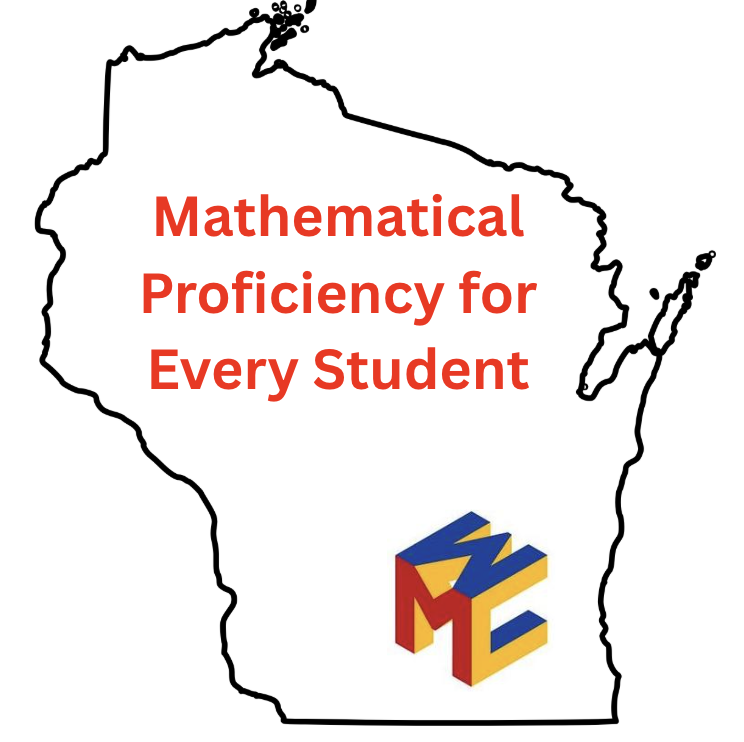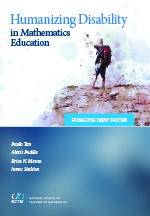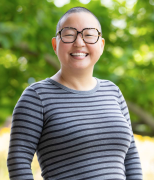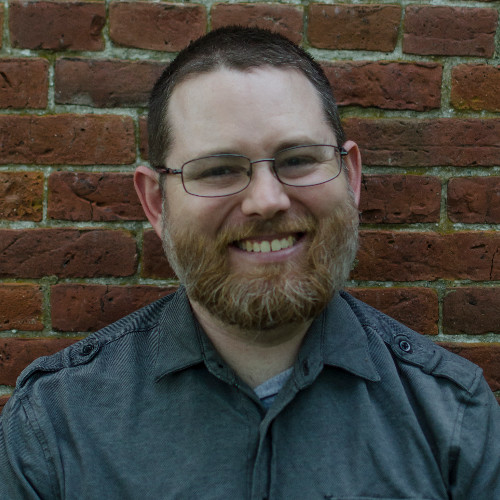Mathematical Proficiency for Every Student Conference

Date: Thursday, November 6 from 8:00 am - 3:00 pm. Breakfast and registraton begin at 7:30 am.
Location: Hilton Garden Inn Milwaukee Northwest Conference Center (11600 W Park Pl, Milwaukee, WI 53224)
Lodging Information: Reserve a room at the conference rate of $135 per night by October 5th via the Hilton Garden in Reservation Link
Cost: $235 for Educators and $50 Undergraduate Teacher Candidates
Breakfast and lunch are included in the registration. Participants will also receive a copy of the keynote speakers' book, Humanizing Disability in Mathematics Education: Forging New Paths.

Join WMC for the Fall MPES Conference on November 6th
Cultivating Inclusive Mathematics Instruction
The MPES Conference will empower educators to create inclusive mathematics classrooms by exploring the teacher’s role in supporting diverse learners, identifying strategies that honor students’ unique mathematical thinking, and discovering actionable ways to collaborate and leverage collective expertise for meaningful instructional impact.
Assumptions
- Inclusive mathematics instruction can support diverse ways of engaging and enriching the learning of all students.
- Disabled students are diverse, brilliant, and powerful mathematics knowers, thinkers, and doers.
- Practitioners bring personal and professional expertise that can strengthen mathematics instruction.
- Individual pedagogies (even those claiming to be “asset-based”) may be anchored in medical model principles.
Conference Learning Goals
- Participants will understand the role of the teacher in developing inclusive mathematics instruction.
- Participants will identify strategies for leveraging students’ mathematical ways of knowing, thinking, and doing.
- Participants will identify actionable ways to leverage their own and others’ expertise.
Agenda
7:30 - 8:15 am Registration and Light Breakfast
8:15 - 8:30 am Welcome
8:30 - 9:15 am Keynote Panel
9:15 - 9:30 am Break
9:30 - 11:15 am Activity and Discussion
11:15 am - 12:15 pm Networking Lunch
12:15 - 1:15 pm Breakout Session #1
1:15 - 1:30 pm Break
1:30 - 2:30 am Breakout Session #2
2:30 - 2:40 pm Break
2:40 - 3:00 pm Conference Wrap-Up
Breakout Session Descriptions (Select two of the following)
Session A Disability as Disablement led by Alexis Padilla
The session elevates disablement as a complex process that can be counteracted. This entails abandoning static conceptualizations of disability as fixed label categories derived from diagnosis or policy mandates. The purpose of doing so is to help participants realize that mathematical pedagogies are as much part of the plethora of intervening dynamic factors that impact disablement and, thus have the potential to act as collaborative anti-ableist catalysts. As much as feasible, this collaboration must involve students and teaching or co-teaching actors.
Session B Disability and Group Work led by James Sheldon
This session presents some of the research and theory around inclusive practices and groupwork, exploring how to make groupwork more accessible through the lenses of Complex Instruction and Universal Design for Learning (UDL). The session will also explore the ideas from the Building Thinking Classrooms paradigm in the context of accessibility. The session invites participants to share their own experiences and ideas using groupwork while also reflecting on the ways it can be misused to reinforce ableist values.
Session C Interdisciplinary Collaboration led by Erica Mason
This session leverages participants’ expertise and experiences to identify barriers and facilitators of effective interdisciplinary collaboration. In community with others at the conference, participants will identify actionable steps for strengthening interdisciplinary collaboration and co-teaching efforts.
Keynote Speakers

Erica Mason
Erica Mason (she/her) is an assistant professor in the Department of Education at the University of Illinois Urbana-Champaign. Erica’s research is situated between the fields of special education and mathematics education. Her primary research focus is on the teaching of mathematics to students with disabilities, specifically investigating teachers’ conceptions of disability and capability. Erica prioritizes co-designing projects through research-practice partnerships and employs a Critical Special Education stance.

James Sheldon
James Sheldon recently completed an Educational Specialist (Ed.S.) degree in Language, Reading, and Culture with a Math Education focus. He also holds Master's degrees in Mathematics and Special Education. He currently teaches elementary, middle school, and high school mathematics, computer science, and physics for the Art of Problem Solving Online (AoPS Online).

Alexis Padilla
Dr. Alexis Padilla is a disabled lawyer, sociologist, theologian and critical disability studies mathematics educator born and raised in the Global South. His first solo book, Disability, Intersectional Agency and Latinx Identity, was published by Routledge in 2021. Dr. Padilla’s most recent volume is currently under contract under the title: Decolonial Disability and Social Epistemologies. As scholar and decolonial anti-ableism activist, Dr. Padilla pursues a blend of actionable ideas and interdisciplinary theories which aim to enhance intersectional disability justice and decolonial projects focused on bridging Global North and Global South contexts toward cross-coalitional movement building and emancipatory learning endeavors.

Paulo Tan
Paulo Tan’s research focuses on advancing intersectional disability justice in and through mathematics education. He is currently an Assistant Professor of Education at the University of California Santa Cruz. Prior to his academic career, he served as a public school middle-secondary mathematics teacher for ten years. His lived experiences with his son led Paulo to pursue a doctorate in special education with an emphasis in mathematics education. His current and future scholarship includes building theories for abolitionist mathematics educational research and practices that center the brilliances of disabled students of color. Paulo identifies as Chinese-American, cisgender male, and non-disabled.
